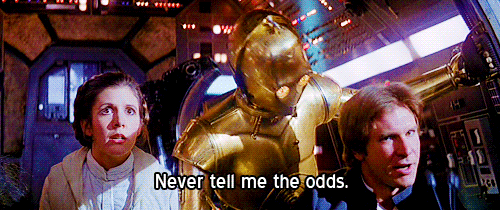My Cancer Story Part III: Making a Treatment Plan
For my last post, I covered what it's like to be diagnosed with cancer - in my case stage IIIa testicular cancer. For this post I will focus on the critical time period between diagnosis and initial treatment. Things start to unfold very quickly following a cancer diagnosis and it's easy to get overwhelmed. I got very busy breaking the news to my family, finding the right treatment plan and struggling to stay positive.
The bearer of bad news
The most difficult series of phone calls in my entire life occurred the day after my diagnosis. My first call was to my mother. Up to that point I hadn't been completely honest with her about my health. I couldn't hide it anymore. I had to tell her. And I knew it would be a complete surprise. But when I called her up to talk, I lost my voice. I tried to say, "I have cancer" but the words wouldn't come out. I swallowed, took a few deep breathes and tried again. This time I managed to choke out the words. Hearing myself say the words out loud made everything way too real to me. Any lingering denial I was holding on to vanished with those words. Somehow, I made it through the call. Then, I had to repeat the awkward process for the rest of my close family and friends.
The phone calls did not get any easier. Everyone had questions, most of which I couldn't answer. Everyone also told me I was going to be okay. I appreciated the sentiment, but I knew that wasn't exactly true. I had looked up the statistics the night before. The five year survival rate was 3 out of 4. Not good, but not bad either. One of the first things any doctor tells you is to not look up the survival odds. Obviously, that is the first thing almost every cancer patient will do.

While difficult, telling my family about my diagnosis, did allow me to unburden myself. I no longer had to hide what was going on. But more importantly to me, I would not have to go through that painful series of phone calls again. Everything was out in the open. I could now focus on what it would take to get better.
The plan of attack
One thing I quickly learned was that you have to be your own health advocate. By that I mean you have to take charge of all aspects of your treatment. Just showing up to your appointments and doing what the doctor says is not enough. Learn how to read the raw test results. Get copies of the scans. Schedule appointments yourself instead of waiting for the overworked secretary to do it for you. I approached my own treatment plan in the same way a soldier might prepare for battle. This was war, and cancer was the enemy. I wanted to know about every potential treatment, the possible outcomes and the doctor's experience. This last aspect proved to be quite important. Testicular cancer is relatively rare. Only 9000 men are diagnosed each year. The oncologist my cowardly doctor (see part II for why he was a coward) sent me to had treated only three cases in his life!
Luckily, my insurance allowed me the flexibility to find my own doctor. Even more lucky, my home city had a cancer center that treated testicular cancer. I was not looking forward to moving home, but I knew the care I would receive would be top notch. Part of having cancer for me has been relearning how to depend on others.
The first surgery
I had the pleasure of receiving all my care at a teaching hospital. This means that every scan, test and surgery was either performed or watched by at least one resident. As I mentioned above, testicular cancer is rare. That meant I was often used as a teaching aide. Nothing will quite match the odd experience of having four people crowd around me as I received a testicular ultrasound. There's also the aspect that for the first time, many of the doctors are my own age. Still, I had done my research and was confident in my choice of doctors.

Orchid comes from the greek word orkhis, which means testicle.
For pretty much all testicular cancer patients, the first step of treatment is the same: orchiectomy - surgical removal of a testicle. Unfortunately, there really is no way around this. Finding out you are going to have a piece of your body cut out is tough. When that body part is a testicle it's extra tough. I had a lot of fears going in to the surgery. At the same time, I was ready to get it done. There is something satisfying about knowing you can get the source of your cancer cut out. This fit in well with my mindset of attacking the cancer. I won't go in to detail on the surgery. Overall it was surprisingly painless and uneventful. If you have any specific questions, let me know and I'll be glad to answer.
A little dose of attitude
Finally, I wanted to address what I think is the key to fighting cancer - attitude. Maintaining a positive outlook, sense of humor and small amount of anger has helped me more than anything else. I think this can apply to anyone going through a tough time, not just a cancer patient. Cancer sucks. Life in general can suck some times. It's okay to be mad about that. What's more important is bouncing back from the tough times and not dwelling on the bad. I leave you with a quote from Nietzsche that has been on my mind recently:
He who has a why to live can bear almost any how
If you have any questions, or you own tips for maintaining a good attitude let me know in the comments! My next part will focus on the chemotherapy I received. [email protected]